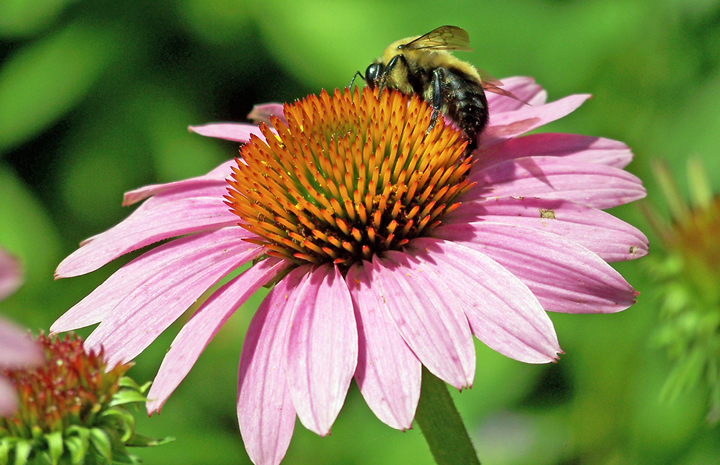
For most of my career, I understood that it is the root and not the tops of Echinacea which have the immune stimulating effects. It was only when I lectured some homeopaths a few weeks ago that someone said they just snip off a flower head and make a tea to kill a cold, that prompted me to look again at Echinacea.
It seems that the current consensus is that Echinacea preparations can have either immune-stimulatory or anti-inflammatory effects depending which part of the plant is used.
Like all herbs, Echinacea is made up of a complex chemical composition which differs between the roots, leaves and flowers.
Very briefly, the leaves and flowers have the highest content of polysaccharides and/or lipoproteins, and these are responsible for the immune-stimulating effects. They also play an important role in the anti-inflammatory effect of Echinacea. This is important because certain parts of our immune system cause inflammation when we are attacked by a virus, and the inflammation can get very dangerously out of control. This is called a cytokine storm.
The roots are richer in alkylamides, which have anti-viral actions, but critically, they modulate the immune system. So instead of the immune system being over stimulated – this part of the Echinacea complex calms an excessive response.
The alkamides also have another very interesting action – they have an effect on cannabinoid receptors (C1 and CB2). These natural chemicals have a very similar structure to the neurotransmitter anandamide, which both balances the immune response and reduces anxiety.
To my surprise, I discovered that Echinacea is used for GAD (Generalised Anxiety Disorder).
Of course, when we are constantly anxious, the raised cortisol levels suppress and skew our immune system towards a more pro-inflammatory response, making us less resistant to viruses. A whole plant extract of Echinacea (and not just the root) will help to calm us, and bring our immune back into a healthy balance.
I have just ordered some Echinacea plants – the flowers and leaves of which will be included in the tinctures that I shall make this summer.
